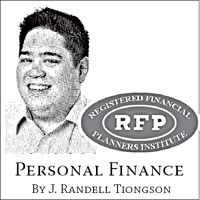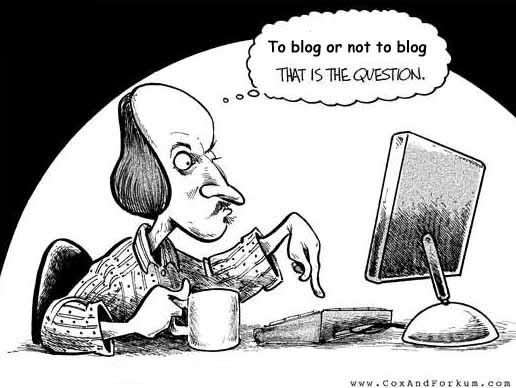What is a financial planner, part 1
By Randell Tiongson on November 17th, 2009
Taken from my column at the Business Mirror
 In 2005, I was approached to help established the Registered Financial Planner Institute in the Philippines. I immediately agreed to be a core part of this endeavor because I felt the financial-services industry needs independent institutions that will advocate for the financial-planning practice.
In 2005, I was approached to help established the Registered Financial Planner Institute in the Philippines. I immediately agreed to be a core part of this endeavor because I felt the financial-services industry needs independent institutions that will advocate for the financial-planning practice.
What is a financial planner? Wikipedia defines it thus: “A financial planner or personal financial planner is a practicing professional who helps people deal with various personal financial issues through proper planning, which includes but is not limited to these major areas: cash-flow management, education planning, retirement planning, investment planning, risk management and insurance planning, tax planning, estate planning and business-succession planning [for business owners]. The work engaged in by this professional is commonly known as personal financial planning. In carrying out the planning function, he is guided by the financial-planning process to create a financial plan, a detailed strategy tailored to a client’s specific situation, for meeting a client’s specific goals.”
The financial-planning practice is relatively new with origins that can be traced in the US in the late 1960s. Prior to this practice, most people got financial advice from people selling financial products. Therefore, there was always a conflict-of-interest issue.
While there is no clear regulation as to who can be called a financial planner, the need for some self-regulation and the demand that a financial planner is competent and trustworthy prompted the birth of organizations to certifications and some benchmarks. One of the earliest certification trademarks was introduced in the early 1970s and is now the most recognized financial-planning certification worldwide—the Certified Financial Planner, or CFP. The CFPs are governed by a board of standards in every country that carries the trademark and are usually self-governing. Unfortunately, the CFP trademark is not yet available in the Philippines. Another world-recognized financial-planning certification trademark is the Registered Financial Planner or RFP. The institute (RFPI) was formed in 1983 with its headquarters in Ohio, US. It is an independent self-regulatory professional organization for providing education and membership in the financial-planning field. It has first established the use of designations of “RFP Registered Financial Planner” and “SRFP Senior Registered Financial Planner” in the world. Another worldwide trademark designation that is now in the Philippines is the International Association of Registered Financial Consultants or the RFC. Like the RFP, the RFC also holds its headquarters in the Ohio.
So what does a financial planner really do? In essence, a financial planner can be compared to a physician—he diagnoses and recommends cures like a doctor does, but on financial concerns.
In the last decade, the term “financial planner” has been used, misused and abused by many in this country; from insurance agents, to bankers, stock brokers, multilevel marketing and even those perpetuating scams, posing a danger for the general public, unfortunately. In this country, anyone can claim to be a financial planner whether or not he has acquired the competence to be called one. Some companies have even started to certify their own personnel in the area of financial planning, which I think is peculiar and self-serving as certification should come only from an independent organization to avoid conflicts of interest.
Certified, registered or not, the acid test of a true financial planner is in the kind of work he can do for you. As the adage goes, “The proof of the pudding is in the eating.” An honest-to-goodness financial planner must take you to a generally accepted financial-planning process that can be summarized in what we commonly adhere to as the “six-step process” which I will discuss in Part 2 of this article.
Catch me in a series of seminars in the next few weeks. Finance Seminars: Would You Mind, Increase your Financial Intelligence—Bacolod, November 21 and 27. No Nonsense Finance Seminar for the SME—Greenhills, November 28. Personal Branding Seminar: Branding U—How to Stand Out among 90M Other Filipinos with Efren Ll. Cruz and Carlo Ople, December 4 at Crowne Plaza. For particulars, visit randelltiongson.com and brandinguevent.com.
“Plans fail for lack of counsel, but with many advisers they succeed” (Proverbs 15:22, NIV).
J. Randell Tiongson is an advocate of life and personal finance. He is a director of the Registered Financial Planner Institute (Phils.) and has over 20 years’ experience in the financial-services industry. He is also the cofounder of income-tacts.com, the country’s premier personal-finance online community. For speaking engagements, financial planning, training and consultancy, send an e-mail to randell@randelltiongson.com. To read his personal-finance blogs, visitwww.randelltiongson.com. The opinion and views expressed herein are solely those of the author’s and do not necessarily reflect those of the Personal Finance Advisers Philippines Corp. or the Registered Financial Planner Institute. Join the 18th RFP Program (January16 to March 6, 2010). Visit www.rfp-philippines.com or inquire at info@rfp-philippines.com. Tel. No. 634-2204
Francis Kong on Simplicity
By Randell Tiongson on November 13th, 2009
With permission from the author, I am ‘re-blogging’ Francis Kong’s wonderful blog “Simplify All You Can”. This is a wonderful advice for us to achieve not just Financial Freedom but Financial Peace. Read on!
—————————
 Even the experts could not agree. So-called financial experts all have their own opinions and analysis on whom and what caused the great financial crisis the world is experiencing and all you need to do is so surf the channels and you will know what I mean. Some blame Wall Street, others the financial institutions. But the most popular question to date is what will happen to Maine Street? Will it recover? How soon and when?
Even the experts could not agree. So-called financial experts all have their own opinions and analysis on whom and what caused the great financial crisis the world is experiencing and all you need to do is so surf the channels and you will know what I mean. Some blame Wall Street, others the financial institutions. But the most popular question to date is what will happen to Maine Street? Will it recover? How soon and when?
Our country has been heavily affected. My friends in the jewelry, home décor and furniture businesses and a great many of them have felt the crunch. And just when we all thought that we have not been hit so hard Ondoy and Pepeng came. Life will no longer be the same. There will have to be adjustments as we face the New Normal.
The thoughts hit me as I stayed in San Francisco for a couple of days last week. For seventy years since World War II much of Western society, America in particular, has ridden an incredible wave of prosperity with several recessions along the way. Although up and down economies are part of the financial cycle, the crisis the world is now experiencing is of a wider global scale and is expected to last longer than the previous recession the world has experienced.
I watched the news on TV. Guess what I saw? There is still a continuous bombardment of car ads, telecom ads, apparel and even real estate. This got me thinking. For the last decades the world has gone into a credit card binge. Just swipe it, and make sure you get that thing that would make you at par with the joneses. And the whole world has bought into the great marketing ploy that delivers the message that if we do not have their products or use them we would remain second-class. Suddenly, the things we have are just not enough. What used to be God’s blessings upon us has dissolved into a culture of coveting driven by greediness and materialism. Our desires became bigger than our wallets. We no longer live within our means. This is not a very good thing. Here is something for all of us to think about. Ask yourself, “How simple is my life compared to 5 or 10 years ago?” Yes, while we have developed the skills of Multi-tasking, what we should not develop is to have multi-billings and killer interest that place chains on us as real as iron shackles. If there is one thing that the killer floods have taught is it is to reassess our lives and go back to the basics.
We need to simplify. Want a bigger house? You need more helpers to clean it. Want an expensive European car? You need more money to maintain it. Want everything money can buy? Where are you going to keep it? Clutter everywhere does not refresh us and meanwhile, when the new car smell disappears and the Hermes and Channel bags hit the closet, we realize that those things no longer make us happy. Most people learn to tighten their belts and go into cost-cutting mode only when they hit trouble. Why not do it now while the funds and money are still coming in on a regular basis?
In other words, simplify…simplify…simplify. It is time for all of us to go back to basics and ask what is essential and what is non-essential regarding the quality of life and not simply the quantity of the “things”—yes the “stuff”—listed on our credit card statements.
We got to get out of the rat race and find the true Source for joy and happiness. Learn to live happily in simplicity.
And if the flood has hit you remember you need to be strong and recover. You need to get your bail out plan from God. He wants you to live a life of fullness. This is why Jesus promised that those who are weary and heavily laden find rest in Him. Do not just move on, you need to move up. Yesterday ended last night. The worst hour is only sixty minutes. Many of those who have suffered during the Asian financial crisis some twelve years ago have recovered. Put your trust in God, move on and move up. I remember saying this during the Asian crisis situation in 1997. I realize this is now the appropriate time for me to say it again. Do not focus on the word crisis. Focus instead on the words: Christ Is!
Advocacy and the New Media, part 1
By Randell Tiongson on October 7th, 2009
I’ve been an advocate of financial literacy for many years now. Aside from the lectures & trainings I conduct regularly, I’ve been using the power of the internet for some time now.
In 2003, I started a yahoogroup called the financialplannersphils which was originally intended for Financial Planners and my colleagues. It has grown through the years and by the end of 2007, I partnered with another personal finance advocate and good friend of mine, Efren Ll. Cruz to put up a personal finance on-line community: www.income-tacts.com. The growth and development of Income-Tacts is very encouraging – it has grown to about 2500 members since it went on-line in January 2008. Income-Tacts has been featured several times in traditional media and has a very solid following amongst its members. Many of the members of the said forum have gone on to have articles published in newspapers, magazines and on-line sites.
Early 2009, my good friend Chinkee Tan convinced me to try posting my articles through a social networking site called Multiply. For several months, I found myself writing many things and later found out that they are called ‘blogs’. I normally write stuff on personal finance, faith and family. In a short time, I noticed that readers of my blogs were increasing in number and reached to hundreds per blog. Like many of us, I got interested in the use of Facebook because many of my friends are using it and I found the interface easy to use. I continued to write blogs in both Multiply and Facebook to convey a central theme: my advocacy for financial literacy and faith.
Some months ago, I was encouraged by my Pastor, Dennis Sy to put up my own site. I wasn’t too keen on putting up a site with my name on it, let alone pay for it so I was cold to the idea … until I met a brilliant young man named Carlo Ople. A few minutes talking with Carlo made me realize about the power of this new media he seems to be an expert on. He introduced a whole new world to me… the world of blogging. He gave such an effective argument as to why I should have my own blog site and encouraged me to widen my reach through blogging. He told me that I write good stuff that should be read by many, not just my friends. Carlo said I have a message and that message must be heard. This was the birth of my blog site, https://www.randelltiongson.com/
Catch Part 2 ….

 In 2005, I was approached to help established the Registered Financial Planner Institute in the Philippines. I immediately agreed to be a core part of this endeavor because I felt the financial-services industry needs independent institutions that will advocate for the financial-planning practice.
In 2005, I was approached to help established the Registered Financial Planner Institute in the Philippines. I immediately agreed to be a core part of this endeavor because I felt the financial-services industry needs independent institutions that will advocate for the financial-planning practice.
 Even the experts could not agree. So-called financial experts all have their own opinions and analysis on whom and what caused the great financial crisis the world is experiencing and all you need to do is so surf the channels and you will know what I mean. Some blame Wall Street, others the financial institutions. But the most popular question to date is what will happen to Maine Street? Will it recover? How soon and when?
Even the experts could not agree. So-called financial experts all have their own opinions and analysis on whom and what caused the great financial crisis the world is experiencing and all you need to do is so surf the channels and you will know what I mean. Some blame Wall Street, others the financial institutions. But the most popular question to date is what will happen to Maine Street? Will it recover? How soon and when?
